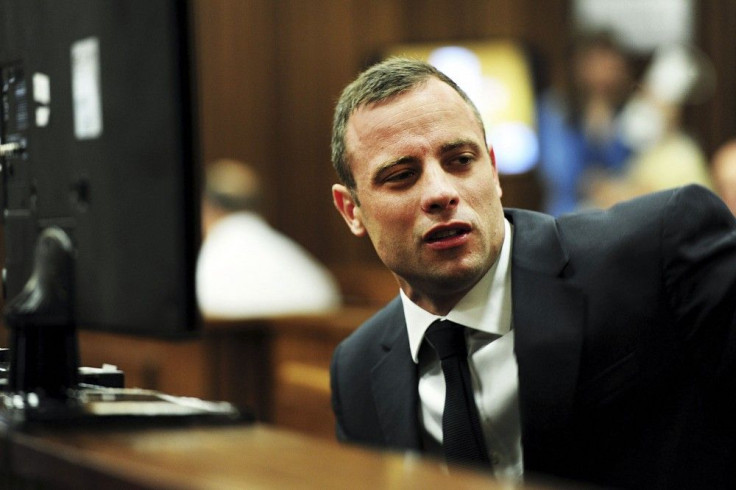Oscar Pistorius Trial Day 13: Prosecution Trying to Establish ‘Defensive’ Stance of Victim, Could Be Crucial Against “Blade Runner”

A few damning evidence were presented in Day 13 of Oscar Pistorius' trial, one of the most controversial cases involving a high-profile athlete the past few years at the North Gauteng High Court in Pretoria, South Africa.
Police ballistic expert Chris Mangena took the stand on Wednesday and demonstrated the probable body stance of Pistorius’ girlfriend, Reeva Steenkamp during and after the time of shooting according to a Yahoo Sports article.
The “Blade Runner” is accused of murdering his girlfriend on Valentine’s Day in 2013.
One of the defenses against the murder charges hurled against him was that he did not know he was shooting at his girlfriend but rather he believed he had fired at an unknown intruder during the incident.
The new testimonies will look to establish the fact that a “defensive” position from the victim will show that Steenkamp was still alive after the first bullet hit her and was still conscious enough to scream in pain at that time.
This means that Pistorius could have been aware that it was her girlfriend on the other side of the locked door during the shooting.
"She was standing in front of the door, facing the door," stated Mangena about the first shot. "That bullet penetrated and broke the hip bone of the deceased."
The second bullet missed but the third and fourth bullets could have taken the life of the victim.
“On impact with the skull, the bullet broke into two fragments. One penetrated the skull and was removed during postmortem, and the other piece of the fragment exited towards the back of the head."
The defense is expected to contest the new testimony with regards to the probable sequence of bullets and shots during the incident.
Under South African law, the prosecution must prove his level of intent to murder, which ranges from premeditation to "dolus eventualis" – "where the accused should have foreseen a possible result, but recklessly proceeded nonetheless," explained Llewelyn Curlewis, the president of South Africa's Law Society.
Pistorius faces life imprisonment and a mandatory 25 years sentence if proven guilty of premeditated murder.





















